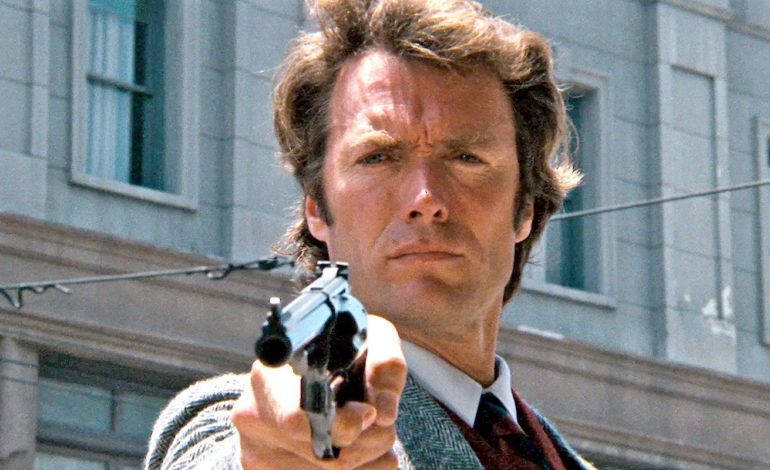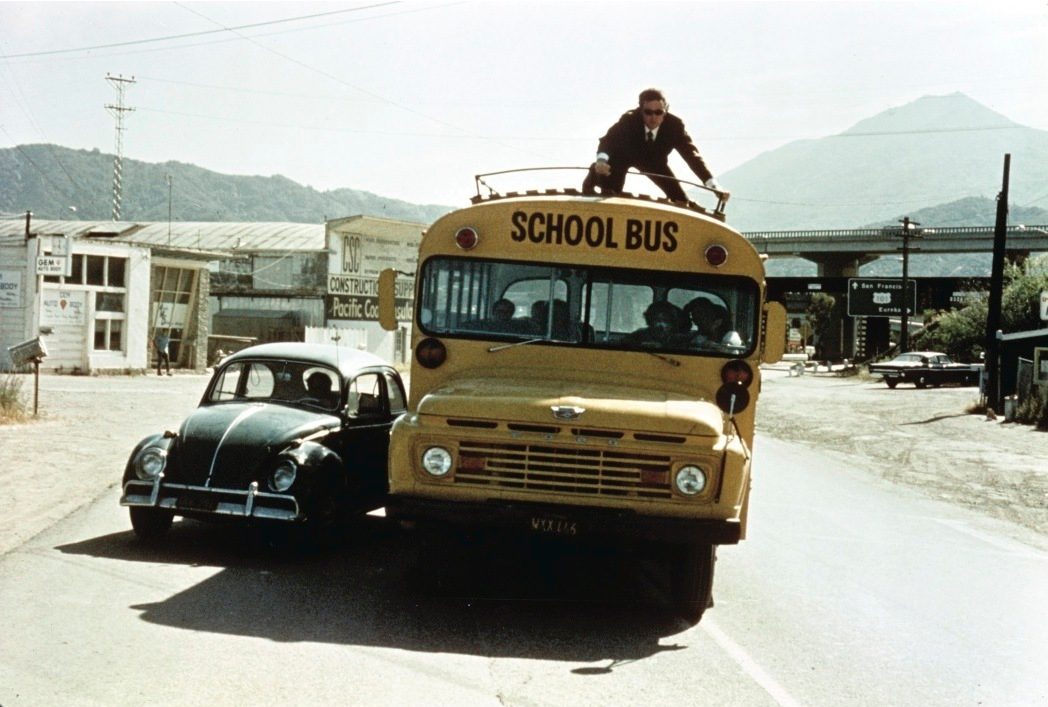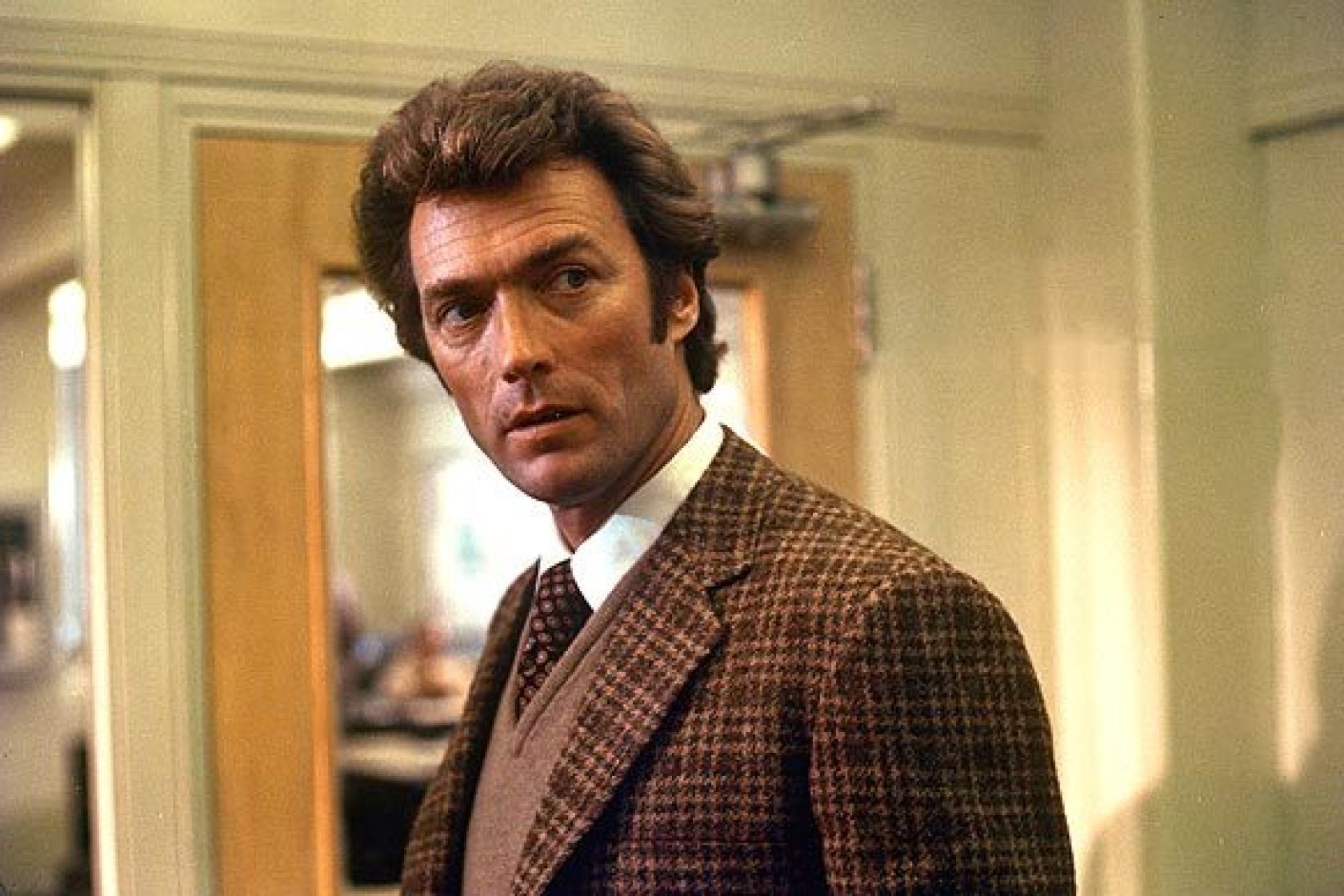

“You got to ask yourself a question… “Do I feel lucky?” Well, do you, punk?” We sure are lucky to live in a world where Clint Eastwood’s 1971 classic Dirty Harry, directed by Don Siegel, can be accessed from anywhere. In light of recent world events, theater attendance may see significant decline and I think audiences will be looking for a great movie to watch from home. Maybe something they haven’t seen before or just haven’t seen in a long time.
Well I got one. It’s a cinema staple with grit, (a whole lot of grit) action, drama and buds of dark comedy. Dirty Harry elevated our beloved Eastwood to superstar level fame beyond Sergio Leone’s Dollars Trilogy, while also stirring uproar socially. They say all publicity is good publicity and that runs true for Dirty Harry, now available on Netflix.
The film introduced Clint Eastwood’s, arguably, most notable on-screen persona aside from the Man with No Name: Detective Harry Callahan. He’s a hardened, quick witted and distinguished detective for the San Francisco Police Department tasked with hunting down the “Scorpio” killer (Andy Robinson), whose acts were inspired by the real life famed “Zodiac” killer. Teamed up with his loyal partner Chico (Reni Santoni), Callahan and his trusty Smith and Wesson Model 29 (I.e. the most powerful handgun in the world) look to bring justice to the city’s criminal scum.
To understand the social backlash and the subsequent craze/popularity that surrounded this film and ultimately its four sequels, one needs to understand the nature of Harry Callahan as a character. He was granted the nickname “Dirty Harry” for taking on “every dirty job that come along.” With an overly aggressive approach to conduct, Callahan’s superiors- the Mayor and Lieutenant– rebuke both his detective style and action. He abides by his own code of moral law. What this means is that Harry is not afraid to pull out his firearm and discharge it into a crowd of people so long as there is ONE criminal running by. He is not, how we would say, “concerned” with the precision of things like obtaining search warrants and mirandizing suspects.


It’s this kind of disregard for protocol that causes Scorpio to be released after Callahan initially captures him in a wild goose chase across the city. After his release, Scorpio uses the red tape of the law and the malleability of the media to build a defense for himself in some shocking ways. This causes Callahan to ultimately take this case into his own hands, and at times deliberately disobey the law to bring a complete and utter psychopath to justice.
It’s here that we see the emergence of the antihero archetype overrun throughout modern pop culture. While the depiction of Dirty Harry’s loose cannon antics caused backlash against “the power of one” mentality at the time, it’s impossible not to see the lasting impact that this film made. Antiheroes became more and more popular in the coming years, and Eastwood would bring a lot of Harry Callahan’s persona to several of his future characters. I think it’s interesting to see something that caused such uproar find its way into trend-setting territory.
There are undoubtedly moments in Dirty Harry that you will question a lot. It feels absurd at times, the way in which the film trail of events plays out within the justice system. Some dialogue exchanges also feels terribly dated with its portrayal of racial and gendered stereotypes, for obvious reasons. But this was a film made in 1971. Times and perspectives were very different; racism was a prominent factor in everyday life and technology available to law enforcement was inferior. Callahan aims to be the hammer that breaks the wheel of these truths, doing WHATEVER he deems is necessary to bring justice to the world.
After watching Dirty Harry, you can understand why the film would cause such an outrage, with many of its themes rooted in racism, sexism and pure evil. Things that may feel commonplace in today’s cinema, or even reminiscent of your average “bang bang shoot ‘em up” flick, seem to be what caused the spark of social outcry after Dirty Harry’s release. If this film were released today, I don’t think it would have made similar waves. However, I think the viewer can still tap into feeling of rebelliousness and restrictedness that original viewers took away from. You can feel the ways in which this movie paved the way for copycats to come. It pushed boundaries and solidified tropes within the genre for the future.


Shot in a very unique and creative way by Don Siegel and cinematographer Bruce Surtees, I believe this film totally holds up as an hour and a half of pure entertainment. The story takes you places you never thought you would go and it’s held together by believable acting work. This is peak Clint Eastwood.
Verdict: 4 out of 5 Stars
While watching Dirty Harry, you may feel that it simply doesn’t belong in this era. But if you think about it, there were those who thought it didn’t belong when the film first released. Truth is, this is not a film for everyone. This is quite literally the antithesis of a chick flick. It’s a neo-noir that lives on the edge- both figuratively and literally- and I would totally recommend it to anyone who hasn’t seen it.
